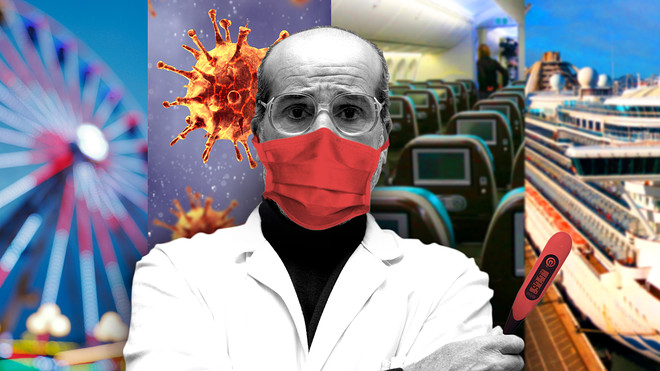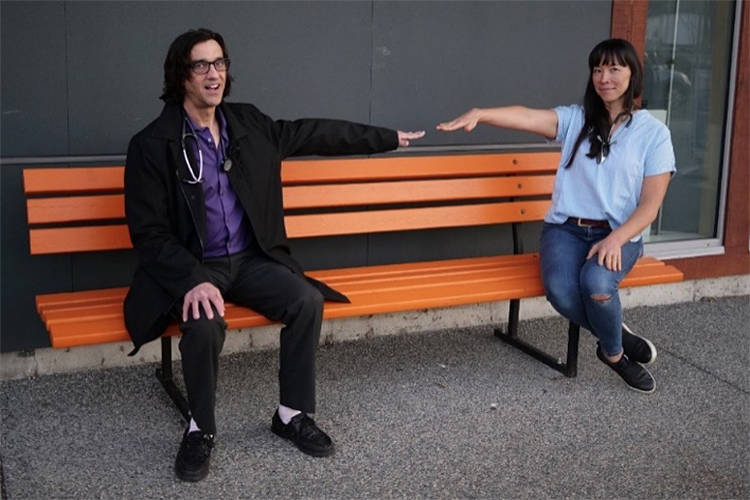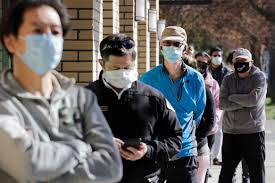Coronavirus: 10 Tips on How to Survive in the Pandemic of Coronavirus

So far, the global novel coronavirus epidemic is close to being out of control. The cumulative number of confirmed cases has reached 14.6 million, and the death toll has exceeded 600,000. In the United States, Brazil, and India, the number of new confirmed cases has increased by tens of thousands every day. In the United States, the number of confirmed cases in one day is close to 100,000. Even so, President Trump is still bragging about his credit, ignoring what may be the worst catastrophic event in American history.
Within such circumstances, especially in countries and regions with severe epidemics, as individuals, how to better survive the epidemic and better protect themselves and their families has become a very critical issue. If you achieve the 15 points mentioned in the article, I believe that after the epidemic, there will be a good start.
1. Follow expert guidance
First of all, follow the advice of experts. The experts here are not only government officials and government leaders, but professional organizations or personnel in the medical and health industry, such as health care organizations in various countries, CDC; for example, Dr. Fucci in the United States. As a single individual, most people don’t understand this virus and its characteristics, as well as how to protect and treat it, so the professional opinions are very important. We can support our political candidates politically, but we cannot blindly treat ourselves and our family’s health as a trifling matter. The lessons of those who lost their lives after believing Trump injecting disinfectants are still very profound.

It doesn’t matter if you don’t understand the new coronavirus virus, but hearsay, you must obtain information and guidance from professional and authoritative channels.
- Disposable Medical Face Masks with Elastic Ear Loop 3 Ply Breathable and Comfortable
- Disposal Protective Clothing for Medical Use
- N95/KN95 Protective Mask with Elastic Ear Loop
- Surgical Mask with Elastic Ear Loop 3 Ply Breathable and Comfortable
- ZeroVirus Space Portable Sterilization Bar
2. Stop handshakes and hugs for Greet
Reducing close contact between people is currently a more recognized way to avoid new coronavirus infection. A lot of evidence shows that exposure can transmit the novel coronavirus. And as one of the social etiquette handshake and hug have become a very large potential means of transmission. Whether it is an Easterner or a Westerner, changes have to be made. The better thing is that we have seen European leaders use elbow contact instead of handshake and hug. This has set a good example for the people.
3. Keep Safe Social Distance
According to analysis, the new coronavirus can avoid being infected within a certain range, which is a safe distance that experts currently agree. Therefore, in social situations and public places, keeping a safe distance between people can avoid the spread of the new coronavirus virus as much as possible.

Especially after the resumption of work is mandatory in many countries, the infection of the new coronavirus has seen a new increase, and the growth rate is very fast. Those people who are ignorant and disrespectful of science hold various gatherings, and even those ignorant young people engage in new coronavirus gatherings. As a result, some people contract the new coronavirus and die, and some people spread the new coronavirus to all family members. It can be said that those who ignore or despise the new coronavirus basically have taught them a good lesson.
4. Wear Face-Cover or Face Mask
For some reason, there are still many people arguing about whether to wear masks, especially in the United States, which advocates so-called democracy and freedom, and Brazil, which advocates freedom and romance. Wearing a mask or not has even become a political affair, which is incredible. At least, in many parts of Asia, China, Japan, South Korea and Singapore, wearing a mask has proven to be able to slow the spread of the new coronavirus. Moreover, droplets have proven to be a good airborne carrier of the new coronavirus. Whether it is a disposable mask or a medical mask, it can isolate the droplets from entering the human respiratory system.

Except for the initial shortage of masks, the government had to cryptically express the role of masks. Now that it has entered a period of serious transmission, there is no longer a shortage of masks, and there is no need to reject masks for the so-called freedom. When you refuse a mask, you refuse the right to life, and you refuse to give your family a safe living environment. If you insist on not wearing a mask, then bringing the virus to your family is an expression of your love for your family?
5. Washing and sanitizing your hands is very important
Because the hands have to be exposed to the air frequently or in contact with various objects, the possibility of the hands being infected with the virus is very high. In order to avoid infection of the new coronavirus, it is very important to wash your hands frequently and wash your hands with disinfectant.
6. Keep your hands off your face at all times
As mentioned earlier, hands are easily contaminated with viruses, so we must do our best to avoid touching other people’s skin, face, and our own face, especially nose, eyes and mouth. These parts are very easy to become the entrance of the virus.
If you must touch your face with your hands, wash your hands first and wash your hands with a disinfectant.
7. Be mindful of your coughs, sneezes and fever
As COVID-19 is a respiratory illness, make sure to cover your mouth properly with a tissue paper or the inside of your elbows as you sneeze or cough. It is important to sanitize your hands or wash them thoroughly afterwards and discard the used tissue properly.
At the same time, it is necessary to keep a sufficient distance from those who may have symptoms of the new coronavirus.
If you or your family members have fever, cough and other symptoms, you need to be vigilant, obtain a comparison of the symptoms of the new coronavirus from the official, and go to the nearest new coronavirus test point for testing in time. If the test is positive, you need to isolate from your family in time to avoid infection to your family, and ask your family and friends you’ve been in contact with to be tested in time. The earlier the test, the earlier the isolation, the earlier the treatment and the earlier the recovery, thereby reducing the risk of death.
8. No crowded places or social gatherings
Remember, unnecessary travelling to crowded places leads to an increased risk of COVID-19 transmission. Instead, try connecting virtually with your loved ones and keep them safe.
We all know that continuous street protests and forced resumption of work are an important reason for the second wave of new coronavirus epidemic in the United States.
9. Avoid unnecessary travelling
Even as the government has opened the lockdown with some reasonable restrictions, one needs to understand that we are still very much battling the pandemic. So, try to stay indoors to keep yourself and your family safe and step outside only when it is absolutely necessary.
The United States and India recently announced the reopening of flights, which is a terrible signal. The flights between the two countries ranked No. 1 and No. 3 of COVID-19 pandemic in the world is another difficult challenge for the control of the new coronavirus epidemic.
10. Fighting Disease and Post Positive Information for public
As a society, one of the ways we will be able to defeat this disease is by being empathetic to those battling coronavirus infection and offering whatever help we can to them and their families in these testing times. COVID-19 patients and their families are facing enormous discrimination currently, making their battle even more difficult. Let’s start by becoming more compassionate towards the patients, all the while being mindful of social distancing. From cooking them a meal, offering to run their errands to even monetary help, we can all do our bit.
We are living in scary circumstances, where unverified and false claims related to the disease can spread further panic. Do not circulate unverified messages through any means of communication.
Conclusion:
While the scientists and medical experts across the globe inch closer to finding a cure for the novel coronavirus, it is important to learn about preventive measures to safeguard ourselves against the COVID-19. These precautionary measures need to be implemented in a sustained manner and we all need to do our bit and fulfill our responsibilities to stay safe. Remember, these behavioural practices will not work in isolation and each one of us will need to follow them thoroughly to make a countrywide impact.
